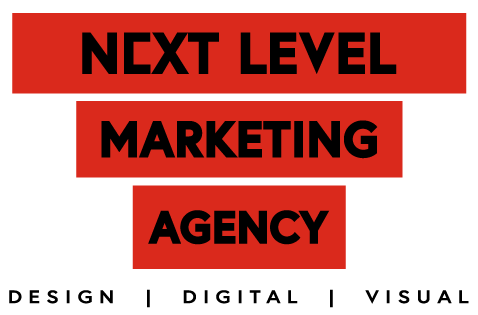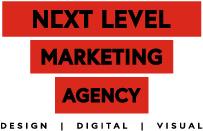If you search the phrase “Is organic social media dead?” on Google, you get roughly 65,900,000 results and at least the first three pages (yes, we’ve checked) have opinion articles debating ‘Organic Social Media vs Paid Advertising’.
In this article, the discussion is created whether businesses should go down the paid advertising route, or hoping that their social media strategy pays off. As a result, the two functions are being pitted against each other as nemesis’; the Batman vs Joker of the marketing world.
But what are they exactly and what differences define the two activities?
What is Organic Social Media?
Organic social media is defined as ‘the use of free tools provided by each social network to build a social community and interact with it, sharing posts and responding to customer comments.’
In layman’s terms, this means that every time you post on social media (regardless of social network), reply to comments, or interact with someone’s post, that’s organic social media. Every time you create any sort of content, whether that be video, a blog or any other type of content, and share that on social media, that counts as organic social media.
Every time that gets an impression, that’s defined as organic social reach – the amount of people reached from a post without the need for paid advertisements. This trend continues for if someone likes or comments on your organic post – this is organic engagement.
Basically, everything that hasn’t been paid for counts as organic social media.
What is Paid Advertising?
Paid advertising is defined as ‘marketing that you pay for.’ This definition goes further on to say ‘paid media includes TV ads, print advertising, sponsorships, and other types of media. In digital marketing, paid media includes Pay-Per-Click (PPC) ads, paid social media ads, and Search Engine Optimisation (SEO).’ Promoted posts are also considered under the paid advertising umbrella.

As you’ll be competing with hundreds of thousands of advertisers, each wishing to reach their target audience, social media advertising works on an auction basis. The advertiser with the highest bid and most relevant advert for the audience (Usually the one with the most click-throughs and engagement) wins the bid. You can cap these at a daily budget to manage expenses.
Basically, every post you pay for promotion on counts as paid advertising.
As mentioned previously, these activities are often viewed as black or white. Marketers tend to focus on one rather than the other rather than using the two in conjunction.
The belief that the only relating factor between the two is that they both utilise social media for brand growth is, just false. In reality, these two marketing activities can run side by side and aid one another. Paid ads can be supplemented by your social media activities and your organic social posts can be boosted with regards to impressions via paid ads. It’s a balance rather than ‘one or the other situation’.
However, they do both individually hold their benefits and drawbacks:
Paid Advertising
Pros: Quick Traffic
You’re spending money daily on paid advertising campaigns so that means you should see daily results, right? In theory, this is true. Paid advertising basically speeds up the process of your business being found.
Your ad will be reaching different people daily so the reach of your posts is so much further than if it were organic. And with more reach (presuming your audience targeting is optimised), you’re more likely to get quicker leads than if you were sticking to the organic route. However, this can be a blessing in disguise (as we’ll discuss later).
Pros: Generating contacts directly from social
More so on LinkedIn, social media advertising reduces the touchpoints the user needs to complete to convert – this helps you put a face to a name if you will.
As best practice, your ads should be pointing to a Landing Page designated to convert your users whether that is for them to fill out a form or sign up to a newsletter. LinkedIn allows you to further this with the ability to create ‘lead gen’ forms which enables the user to fill out a form natively on the social platform to get the advertised offer. This can link up to your customer database, adding a new user. Nifty eh?

Cons: Costs involved
The clear issue with using paid ads is the cost.
Paid advertising relies on the fact that you can afford to not only just put your offer out there, but that you can also outbid your competitors. This is fine if you have the budget to outbid your opposition, but ad campaigns can sometimes prove very costly when compared to the leads you’re bringing in. Dependant on how well you understand your audience, you can find yourself throwing money away for a poor ROI.
Cons: Quality of lead
The other outlier for not using paid advertising is a lower quality of lead.
As mentioned in the previous point, unless you know your audience inside out, you may struggle to see the quality of lead you were hoping for. Paid advertisements are hyper-targeted to ensure you’re presenting your offer to a specific audience with a need for it. Not only will this not see the correct people converting, but you may also see the ad performing poorly due to a lack of relevance.
Here at NLMA, we focus on creating specific personas bespoke to your business to ensure the campaigns we create don’t fall into these holes. Interested in learning more about how we can help manage your PPC Campaign? Explore our full service here.
Organic Social Media
Pros: It’s Free!
The obvious one here. Creating posts on social media is free no matter if you’re a person or business.
By going down the organic growth path, you will find there are a lot of brilliant free tools you can use to create content. Platforms such as Pulse and Lumen5 allow you to create a variety of high quality visual content that you can use to drive engagement and start posting consistently on social media.
Pros: Increases Brand Authority
This one is down to opinion, but if you grow your brand organically rather than relying on paid advertisements for promotion, your users will start to believe your brand is more credible.
As the more inbound marketing focussed out of the two, you’re wanting people to come to your brand as oppose to being disruptive to gain attention. The more people you begin to engage organically, new users who won’t have seen your business previously will likely believe your business to be an industry leader and, therefore, someone to follow. This way of thinking promotes brand authority and increases thought leadership – two common measurables in marketing strategies.
Cons: Content Creation
Distinguishing topics to discuss for your business can be an overwhelming and laborious task. And once you’ve nailed down the subject of your content, it’s a long process from start to finish.
Content creation is a task that marketers rarely relish. Producing a really good bit of content requires a strong knowledge of your audience and expertise in copywriting – something a lot of marketers struggle with. Social media’s function should be promoting and supplementing the content your business is producing but if you’re struggling to create content in the first place, your social reach will take a hit as a result.
READ: Make the most out of your existing content by repurposing your content
Cons: Time, time, time
It’s time to get out of your head that your business’ blog post will go viral overnight.
To go viral you need a concoction of two things – content that has ‘viral potential’ and a lot of luck. Viral content often consists of an entertaining or funny video rather than informative posts. The thing with organic social media is that increasing reach, followers and social conversions take a lot of time. You may only see gradual gains for your first six to twelve months but, after that, growing organically becomes naturally easier.
If you have the patience to post consistently with a variety of engaging content, organic social media is tailored perfectly for you.
Discover how we can help transform your Social Media Strategy.
It’s all well and good having all this information but putting it into practice is another issue within itself. Which path does my business go down? How can I utilise both effectively?
As paid ads display visible results instantly, people are starting to prioritise them for marketing growth. Provided you’re targeting the correct audience types and with the correct messaging, ads can be a really effective way of increasing the reach of your brand. However, if you’re struggling to identify your market, it may be tricky to effectively deploy this strategy.

It would be incorrect to say that organic social media posting for businesses is completely effective. With social media platforms reducing the amount of business posts the end user sees, business posts are now, more so than ever, getting lost in the digital noise. On the other hand, consistent and quality posting will help your content stand out more and engage your audience.
So what’s the perfect balance?
Ultimately, that’s for your business to decide. If you have the budget and understand your audience extremely well, using paid ads to give your social account that extra boost will be worthwhile. If content creation isn’t a problem for you but are still working out your audience, taking the organic road will be the path for you.
However, as we mentioned throughout this blog, there’s no reason why these two can’t work in conjunction with each other. If you have an offer (like a report, whitepaper etc.), there’s no reason you can’t promote that if you know exactly who you’re targeting. By creating supplementary blog and video content on the back of that for organic social media purposes, you’ll see the greatest ‘bang for your buck’.
Take the Dive.
At the end of the day, incorporating this into your Marketing Strategy for the upcoming year shouldn’t be overwhelming. It’s not Organic Social Media Vs Paid Advertising; it’s a balance.
At Next Level Marketing Agency, we’ve worked with clients bridging this gap in their strategy and implementing strategies to ensure our client’s see a clear ROI. If you would like us to give some help with regards to your social media management and PPC ads, get in contact with us and we can see where we fit into your next campaign.

![Our Two Cents Worth: Organic Social Media vs. Paid Advertising [A Complete Comparison]](https://nextlevelmarketingagency.co.uk/wp-content/uploads/2020/11/chelsea-audibert-cwM9uPpiAhM-unsplash-1.png)

